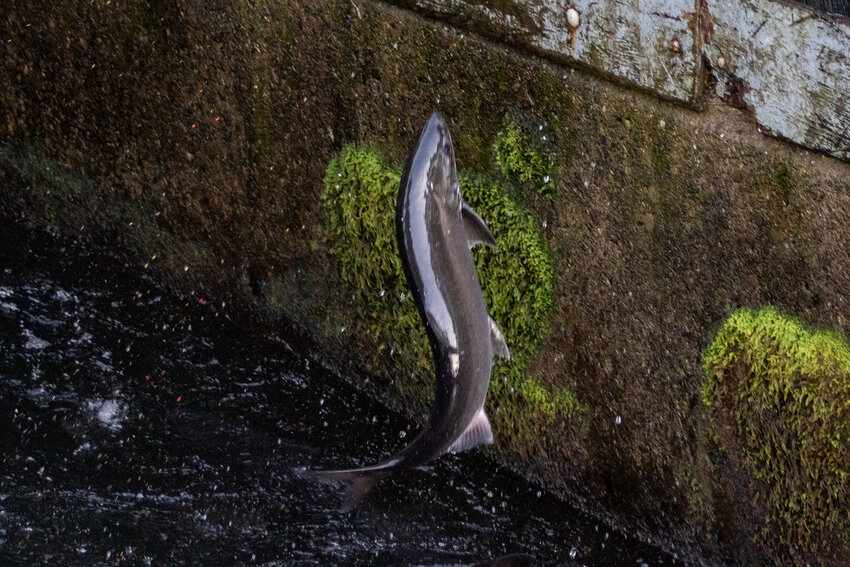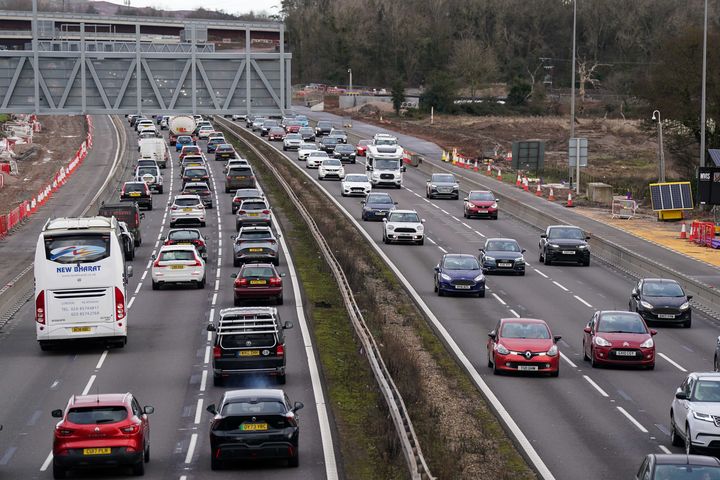
brought together the films’ two directors – s Halina Reijn and ’s Nora Fingscheidt, who are also both northern Europeans (the Netherlands and Germany, respectively) now working in the English language – to discuss the processes of making their films, what connections they see in these two stories and where the future might take them. Reijn started her career as a theatre actress before moving into film. She directed her first feature, Dutch-language 2019 thriller , before making her English-language debut with A24’s house-party murder mystery , starring Nicole Kidman as an executive in New York who starts an illicit affair with her intern (Harris Dickinson), is based on Reijn’s original screenplay.
The film premiered at Venice where it won Kidman the best actress award and was nominated for two Gothams including best feature. A24 releases in North America on December 25, and Entertainment Film in the UK in January. For , Fingscheidt adapts Amy Liptrot’s 2016 bestselling memoir about overcoming her alcohol addiction by returning home from London to Scotland’s remote Orkney Islands; Saoirse Ronan helped develop the project and also stars as well as producing.

Fingscheidt rose to prominence with her striking 2019 debut feature, German-language drama , followed by Netflix feature starring Sandra Bullock. , which Fingscheidt scripted with Liptrot, premiered at Sundance and was nominated in nine categories at the British Independent Film Awards. Sony Pictures Classics released in North America and Studiocanal in the UK.
Reijn joined the Zoom discussion from her new base in the West Village of New York City, and Fingscheidt from her longtime home in Berlin, when she was nine months pregnant and about to welcome her family’s newest addition. Producer Sarah Brocklehurst sent me an email with Amy’s book, and Saoirse was attached to star and produce already. So I had the benefit of reading this quite unadaptable book with her in mind.
In the beginning, I thought it is impossible to film because it’s so internal. Then I realised it would be a great challenge to put this together as a movie. I was very intrigued by this brutal honesty in which Amy describes her addiction and the physical consequences of that.
And I was excited to explore the Orkney Islands and make this film feel as local as possible. I was a stage actress all my life – all these classical roles, Hedda Gabler, Shakespeare, [Eugene] O’Neill. I love them because from Mary Stuart to , they’re all about power and surrender and control and violence and all these big existential themes, but they’re all male gazes.
I lived in this classical dramaturgy for so long; that was my education as a writer. But what I’m trying to do with this movie is ask, “Is it possible to love my whole self, also the dark things that I’m very ashamed of?” Not really. It was just a story written by a young woman, with a 29-year-old actress starring and me as the director.
It was our view on the world, a female one. I know from talking to Amy that addiction among young women isn’t taken seriously, like alcoholism belongs to unemployed men over 50. Young women are told you don’t have an alcohol problem, you just like to party.
But we took the problem seriously. I think what I really connect to in Nora’s movie is the addiction – I’m fascinated by addiction on every level, because even if we’re not alcoholics, we all deal with behaviour that is something intellectually you know you shouldn’t do, and you’re still doing it. In my movie, Nicole becomes addicted to Harris.
She can’t stop and she risks everything. I also think what connects both films is how the characters are facing their own demons. In both cases, they are somewhat their own antagonists, there is a self-destructive force.
I also like the relationship of the two characters of Harris and Nicole, and how he was also a very complex character. I love what you’re saying that the antagonistic forces are inside them and, in the end, they’re battling themselves. Saoirse and I spent a year working on this.
I find that a blessing, because she was also a producer – that means it was her baby as well as mine and she was so committed so early on, she was so involved in developing the character. We had processes where we talked a lot about the script and we rehearsed. Then she worked with choreographer Wayne McGregor and a dialogue coach to find out, how does Rona move? How does she move when she’s tipsy drunk, happy drunk, messy drunk? It needed to be a certain mix of an accent.
Then on set, every day is different, and every scene needs something different. Sometimes my job is just to give her space and make sure she can concentrate. Sometimes my job is to push a little bit further.
With actors, I have to find out what she or he needs from me to be as free as possible in that moment, and from person to person that can differ, and from the same person that can even differ from day to day. Acting is so magical. Nora, I love what you’re saying about freedom, that you’re there to set the actor free.
That’s how I wanted to be treated as an actress. These two women, they’re both so accomplished that they are more than actors on the projects. It becomes their baby.
All you need to do is help them become completely honest within the moment. Being from Europe, I love to play with more Brechtian style, where you almost break through the fourth wall. You almost show the mechanism behind it.
An example is when Harris tells Nicole, “Get on your knees.” And then immediately he laughs. He said, “Oh sorry, I didn’t mean that.
” You can almost see the actors go in and out and explore different kinds of human behaviour. Nora, how do you also experience being a European director coming into this English-language market? Like me, you were shooting in an environment that is not yours originally. Do you find that scary? Yes, I find it scary.
With [English-language projects], I try to find out why they want me. That’s usually my first question: why aren’t you looking for a Scottish director? Then it depends on the answer. Now I have shot two films in English.
I learned a lot from my first experience. There were moments where I felt very restricted because I couldn’t express myself elegantly because I’m not a native English speaker – it felt like I was dancing with big wooden shoes on. Also there is a cultural barrier.
When you’re from Germany, you’re used to communicating very directly, which easily is perceived in other cultures as rude. So I found myself offending people without intending that, and I had to learn to communicate more politely [laughs]. It’s very different.
was my script. was a script that already existed and I came on board close to shooting. And then is something in the middle, because I started writing and creating the script from scratch with Amy together, but it was based on her book.
So it’s three very different experiences. Because I had only made one feature in Europe, it took me a little bit to figure out what my role was as a director in America. In Europe, I would have never gotten the chance to film such a big project [as ].
It was a life-changing experience in many ways; it was so enriching to get out of Germany. I think our careers have been quite similar. I’m also coming to America and trying to find my path here.
I always thought of myself as a citizen of the world. Then I come to New York, and I am the most Dutch farmer you will ever meet. I’m way too blunt, I scare everyone.
I need to totally transform myself. As you said, it’s a great experience, because it’s humbling. I was 45 when I arrived here and I had no clue how to behave.
I wouldn’t trade it for the world, but it is a very strange experience. Also we come from countries where there is government money for culture. And here, every dollar you spend you have to make back.
It’s a different game. Nora, what do you want to do now? Do you want to make another movie completely from scratch in Germany? Or would you like to continue to work in the English language? Both. Maybe it has been three movies in a row and a baby, and now we’re expecting our third child, and I just feel like I need a little break, to sit on a mountain and do some meditation to find out what I want.
Because I loved all three experiences. I hear you. I think taking a break is also very important, that stepping back and living instead of only working.
Especially living in New York, you get infected by this culture of working yourself to death. Nobody’s going to catch you if you fall in America, like in Europe. I’m like Nora, I do feel in doubt.
Sometimes I think, “Oh, I should go back to my own country and make a small arthouse movie where I’m completely free and I can do what I want.” But with , working with A24 is so unique that they give you so much artistic freedom. For now, I really love it here, and I really am in love with America, even though I feel so much like a wooden-shoe-wearing Dutch farmer.
I’m also learning to be more polite [laughs]..











